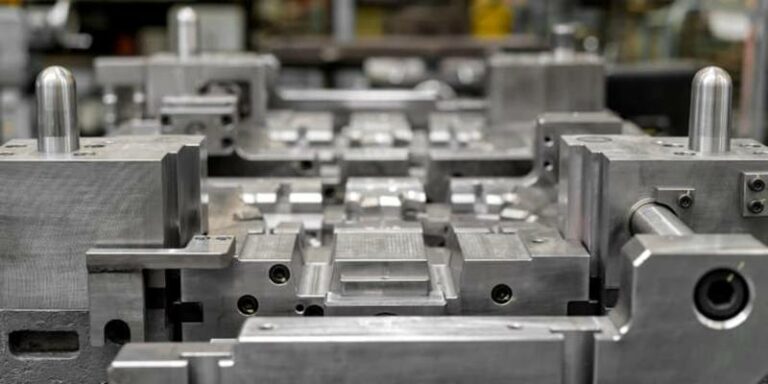The Ultimate Guide To Alcast Company
The Ultimate Guide To Alcast Company
Blog Article
The Of Alcast Company
Table of ContentsAlcast Company - QuestionsThe Basic Principles Of Alcast Company What Does Alcast Company Mean?Some Known Details About Alcast Company 4 Easy Facts About Alcast Company DescribedNot known Details About Alcast Company
Chemical Comparison of Cast Light weight aluminum Alloys Silicon advertises castability by minimizing the alloy's melting temperature level and boosting fluidness during casting. Furthermore, silicon contributes to the alloy's strength and wear resistance, making it beneficial in applications where resilience is vital, such as vehicle components and engine parts.It additionally boosts the machinability of the alloy, making it easier to refine into finished products. This way, iron adds to the overall workability of light weight aluminum alloys. Copper increases electric conductivity, making it helpful in electric applications. It also improves deterioration resistance and includes in the alloy's overall strength.
Manganese contributes to the strength of aluminum alloys and improves workability. Magnesium is a light-weight element that gives toughness and effect resistance to light weight aluminum alloys.
Alcast Company - Questions
It enables the manufacturing of lightweight components with excellent mechanical homes. Zinc enhances the castability of light weight aluminum alloys and aids manage the solidification procedure throughout spreading. It improves the alloy's stamina and solidity. It is commonly discovered in applications where complex shapes and fine information are essential, such as ornamental spreadings and specific automobile components.

The key thermal conductivity, tensile stamina, return stamina, and prolongation differ. Select appropriate raw materials according to the efficiency of the target product generated. Among the above alloys, A356 has the greatest thermal conductivity, and A380 and ADC12 have the most affordable. The tensile restriction is the opposite. A360 has the ideal yield stamina and the highest possible elongation rate.
The Buzz on Alcast Company

In accuracy spreading, 6063 is fit for applications where elaborate geometries and premium surface area coatings are paramount. Examples consist of telecommunication enclosures, where the alloy's exceptional formability allows for sleek and cosmetically pleasing layouts while keeping structural stability. In the Lighting Solutions sector, precision-cast 6063 parts produce sophisticated and effective lighting fixtures that need complex forms and excellent thermal efficiency.
It brings about a better surface finish and far better rust resistance in A360. The A360 exhibits superior prolongation, making it suitable for complicated and thin-walled elements. In precision casting applications, A360 is well-suited for markets such as Customer Electronics, Telecommunication, and Power Devices. Its enhanced fluidness permits detailed, high-precision elements like mobile phone coverings and communication gadget real estates.
Facts About Alcast Company Uncovered
Its distinct properties make A360 a beneficial option for accuracy spreading in these markets, improving product durability and top quality. Aluminum alloy 380, or A380, is a commonly used spreading alloy with numerous distinct features. It supplies excellent castability, making it a suitable option for accuracy spreading. A380 displays excellent fluidity when molten, making sure elaborate and detailed mold and mildews are accurately duplicated.
In accuracy spreading, light weight aluminum 413 beams in the Consumer Electronics and Power Equipment sectors. It's commonly utilized to craft detailed parts like smart device housings, video camera bodies, and power tool housings. Its accuracy is impressive, with tight resistances up to 0.01 mm, making sure flawless item assembly. This alloy's superior rust resistance makes it an outstanding selection for outdoor applications, guaranteeing resilient, resilient products in the discussed sectors.
The Facts About Alcast Company Revealed
Once you have chosen that the light weight aluminum die casting process is appropriate for your project, a critical following action is choosing on one of the most suitable alloy. The aluminum alloy you choose will considerably affect both the casting process and the homes of the end product. Due to this, you need to make your decision thoroughly and take an enlightened method.
Determining the most ideal light weight aluminum alloy for your application will imply evaluating a broad range of attributes. The first group addresses alloy attributes that impact the manufacturing process.
Our Alcast Company Diaries
The alloy you pick for die spreading directly influences several elements of the casting process, like just how simple the alloy is to function with and if it is prone to casting problems. Warm cracking, additionally called solidification splitting, is a regular die spreading issue for aluminum alloys that can result in internal or surface-level splits or fractures.
Specific aluminum alloys are more prone to warm splitting than others, and your selection should consider this. Another common problem found in the die casting of light weight aluminum is pass away soldering, which is when the cast stays with the die walls and makes ejection difficult. It can harm both the cast and the die, so you need to seek alloys with high anti-soldering properties.
Deterioration resistance, which is already a noteworthy site web characteristic of aluminum, can vary significantly from alloy to alloy and is an important particular to consider relying on the ecological conditions your product will be subjected to (Aluminum Castings). Put on resistance is an additional home frequently looked for in light weight aluminum products and can differentiate some alloys
Report this page